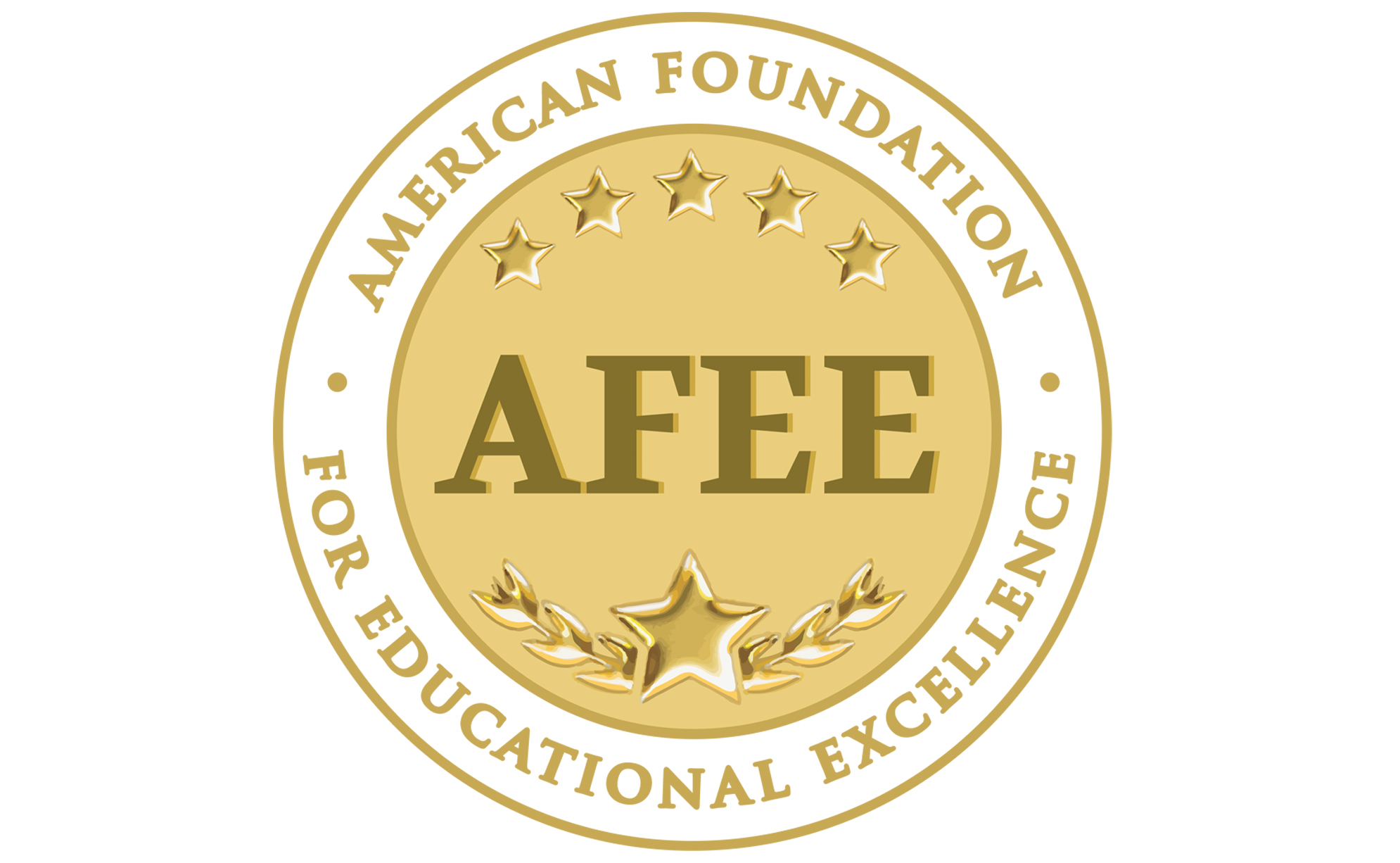Executive Program on Instructional Course Design & Educational Technology
This program is aimed at executives and educators who wish to hone their skills in course design and technological applications.

How to Lead Successfully in Instructional Course Design & Educational Technology
Dates: Custom Tailored, Based on Your Needs
Time: Fall 2024, Mondays & Fridays
Location: GWU, Duques Building
Objective: Help Empower Business Leaders and Educators to Lead Successfully in Instructional Course Design & Educational Technology.



Course Overview:
This course aims to empower educators with cutting-edge instructional course design strategies and a comprehensive suite of 21st-century technological tools essential for enhancing teaching and learning. By the end of the course, participants will be equipped to design dynamic, learner-centered environments that not only foster engagement and personalized learning but also promote the development of higher-order thinking skills, such as innovation and creativity, through the application of Bloom’s taxonomy.
In addition to instructional design, educators will gain proficiency in a diverse range of technological tools, including website design, Canva, Calendly, advanced PowerPoint, PollEverywhere, Google Suite, and artificial intelligence applications. These tools will be critical for both enhancing their own teaching practices and imparting essential skills to their students and fellow educators.
The course also emphasizes the importance of metacognition, or “thinking about one's own thinking,” which is critical for developing reflective and self-directed learners. Just as emotional intelligence involves thinking about one's own feelings, metacognition empowers educators and students to evaluate their thought processes and learning strategies, leading to more effective decision-making and problem-solving. Together, these skills—emotional intelligence and metacognition—are key drivers of personal and academic success, more so than IQ alone, as they foster self-awareness, resilience, and growth.
Guided by Maslow’s concept of transcendence, participants will also learn to instill a sense of purpose in their students, encouraging them to pursue goals that benefit the broader community. The principles of Vygotsky’s Zone of Proximal Development will ensure that learning objectives challenge students while supporting their growth, while Stephen Covey’s "win-win" philosophy will cultivate collaboration and mutual benefit in educational settings.
Ultimately, this course will equip educators with the pedagogical knowledge, technical expertise, and emotional insight necessary to create innovative and impactful learning environments, driving improved student outcomes and fostering a culture of continuous learning and meaningful contribution.
Vision:
This course envisions a future where educators are empowered to create dynamic, learner-centered environments through cutting-edge instructional design and advanced technological tools. By fostering innovation, creativity, and higher-order thinking skills, the course aims to transform education, equipping educators to cultivate reflective, emotionally intelligent learners who are prepared to contribute meaningfully to the broader community. Through the integration of metacognition, emotional intelligence, and personalized learning, educators will inspire students to pursue goals that transcend individual achievement and foster a culture of lifelong learning and collaboration.
Mission:
The mission of this course is to equip educators with both the pedagogical knowledge and technological expertise needed to enhance teaching and learning in the 21st century. Through a blend of instructional design strategies, tools like website design, Canva, and artificial intelligence, and frameworks such as Bloom’s taxonomy and Vygotsky’s Zone of Proximal Development, participants will be empowered to create impactful learning experiences. The course will also emphasize emotional intelligence, metacognition, and collaborative approaches like Stephen Covey’s "win-win" philosophy, enabling educators to support their students' holistic growth and success.
Course Goals:
- Empower educators with cutting-edge instructional design strategies:
- Equip participants with the skills to design dynamic, learner-centered environments that foster engagement, creativity, and innovation through the application of Bloom’s taxonomy.
- Develop proficiency in 21st-century technological tools:
- Train educators to effectively use a diverse range of tools, including website design, Canva, Calendly, advanced PowerPoint, PollEverywhere, Google Suite, and artificial intelligence, to enhance teaching and learning experiences.
- Foster higher-order thinking skills:
- Promote the development of critical thinking, problem-solving, innovation, and creativity in students by equipping educators with strategies that encourage higher-order thinking.
- Integrate metacognition and emotional intelligence in teaching:
- Teach educators how to develop students' self-awareness through metacognition (thinking about thinking) and emotional intelligence, enhancing decision-making, problem-solving, and resilience.
- Apply psychological and educational theories to support student growth:
- Incorporate concepts like Vygotsky’s Zone of Proximal Development to ensure appropriate challenge levels for students and guide them through emotional and cognitive growth.
- Encourage a focus on purpose and selflessness:
- Instill a sense of purpose in both educators and their students, inspired by Maslow’s transcendence, emphasizing goals that benefit the broader community beyond self-interest.
- Promote collaboration and mutual benefit in learning environments:
- Apply Stephen Covey’s "win-win" philosophy to create collaborative and inclusive classroom settings that benefit both educators and learners.
- Prepare educators to lead technological innovation in education:
- Enable educators to not only adopt technology for their own teaching practices but also to train their students and peers in these essential technological tools.
Course Objectives (Aligned with Bloom’s Taxonomy)
- Remembering (Recall basic concepts and facts):
- Identify at least five key instructional design strategies and explain their purpose in creating learner-centered environments.
- List and describe the functionalities of at least five technological tools (e.g., Canva, Calendly, Google Suite) that can be used to enhance teaching and learning.
- Understanding (Comprehend the meaning and explain ideas):
- Explain the importance of Bloom’s higher-order thinking skills in fostering student creativity and critical thinking in educational settings.
- Describe how Vygotsky’s Zone of Proximal Development supports the cognitive and emotional growth of students.
- Illustrate the relationship between emotional intelligence and academic success, and how it differs from IQ.
- Applying (Use knowledge in new situations):
- Apply the principles of instructional design to create a lesson plan that incorporates metacognition and encourages students to reflect on their own thinking.
- Use a technological tool (e.g., Google Suite, PollEverywhere) to design a learner-centered activity that enhances student engagement and interaction.
- Analyzing (Break down information into components and examine):
- Analyze the effectiveness of a specific instructional strategy in promoting higher-order thinking, using Bloom’s taxonomy as a framework.
- Compare and contrast the use of emotional intelligence and metacognition in fostering self-awareness and resilience in students.
- Evaluating (Judge and critique information or methods):
- Evaluate the success of a created lesson plan or teaching tool based on feedback from peers and students, using specific criteria related to engagement, creativity, and innovation.
- Assess the application of Stephen Covey’s "win-win" philosophy in collaborative classroom environments, providing recommendations for improvement.
- Creating (Produce original work or new solutions):
- Design an innovative learning environment or project that integrates at least three of the following elements: higher-order thinking skills, metacognition, emotional intelligence, and technological tools (e.g., Canva, AI applications).
- Create a self-assessment tool that helps students reflect on both their cognitive and emotional growth, incorporating concepts from Maslow’s transcendence.
Examples of Specific Measurable Objectives:
- Objective 1 (Applying, Creating): By the end of the course, educators will design a complete, learner-centered lesson plan incorporating Canva or Google Suite that enhances student engagement and demonstrates personalized learning.
- Objective 2 (Understanding, Evaluating): Educators will explain and critique the role of emotional intelligence in the classroom and create a strategy to implement emotional intelligence practices in their teaching.
- Objective 3 (Analyzing, Applying): Educators will analyze a current lesson plan, apply Bloom’s taxonomy to improve higher-order thinking skills, and present their revised lesson for peer review.


Tentative Program
Program FAQs
What is the course format?
The course is hands-on and will feature interactive sessions with polls and feedback questionnaires.
The participants will share their work and receive feedback from the instructor and their classmates.
What days/times will the sessions take place? Where?
On Mondays and Fridays from 6:00-8:00 pm EST.
Location: Duques Building
What are the learning outcomes?
Main Outcome: Empower Yourself to Lead Successfully in Instructional Course Design & Educational Technology.
Who teaches the course?
The course is taught by Nada M. Salem, President/CEO of AFEE and IFWE.
 Nada M. Salem is a passionate educator with extensive experience in leading academic institutions in the United States and abroad. Over more than twenty years, she has taught school students, college students, student teachers, teachers, and leaders. She co-created and co- taught a methods course for teachers at The George Washington University Graduate School of Education. Nada is the Co-Editor in Chief of “Teaching World Languages: A Practical Guide- Arabic Edition” (The National Capital Language Resource Center, Washington, DC).
Nada M. Salem is a passionate educator with extensive experience in leading academic institutions in the United States and abroad. Over more than twenty years, she has taught school students, college students, student teachers, teachers, and leaders. She co-created and co- taught a methods course for teachers at The George Washington University Graduate School of Education. Nada is the Co-Editor in Chief of “Teaching World Languages: A Practical Guide- Arabic Edition” (The National Capital Language Resource Center, Washington, DC).
Mrs. Salem holds a teaching diploma, two master's degrees, one in translation and another in education, and has successfully completed most courses (33 credits) towards a doctorate (Ed.D.) in Curriculum and Instruction & Educational Technology Leadership at The George Washington University Graduate School of Education. Additionally, she holds an Executive Certificate in Public Leadership from Harvard University. Mrs. Salem formerly served as Administrative Director and Assessment of Learning Coordinator for AACSB Accreditation at the GWU School of Business’s Master of Science in Finance Program. In September 2019, Mrs. Salem was selected as a WOMAN LEADER by the University of Maryland‘s Kahlil Gibran Chair for Values and Peace. She is a member of the Marquis WHO'S WHO® list of Prominent Business Professionals, and she was featured among Marquis Who's Who's Top Executives in Education and Leadership.
Mrs. Salem is the Founding President/CEO of the American Foundation for Educational Excellence (AFEE), an organization whose mission is to help, on a worldwide basis, influencers, leaders, HR professionals, and managers of educational institutions, profit and non-profit organizations and corporations, to pursue excellence by improving leadership skills, managerial competencies and educational programs, namely through face-to-face and online trainings. AFEE is an Approved Provider for both HRCI & SHRM.
Mrs. Salem is also the Founding President/CEO of AFEE’s subsidiaries, the Center for Excellence in Languages: Teaching, Editing, Translating, and Interpreting, and the International Foundation for Women's Empowerment (IFWE) which seeks to empower all women and help them thrive on the personal and professional levels, regardless of nationality and religion.

Main Textbook:
- "The Systematic Design of Instruction" by Dick, Carey & Carey (Digital)
Additional Textbooks:
- "Understanding by Design" by Wiggins & McTighe
- "50 Strategies to Boost Cognitive Engagement" by Rebecca Stobaugh
- "Teaching Students to Drive Their Brains" by Wilson & Conyers
TERMS OF SERVICE: We reserve the right, in our sole discretion, to reject or remove anyone who has registered or gained access under false pretenses, provided false information, or for any other action or behavior that we deem inappropriate, before, during or after the sessions, with or without prior notice or explanation, and without liability.
IMPORTANT DISCLAIMER: All rights reserved. The information on this page shall be considered proprietary information not to be used, copied or reproduced in any way. No part of our presentations / workshops / webinars may be reproduced, distributed, or transmitted in any form or by any means, including photocopying, recording, or other electronic or mechanical methods.














































